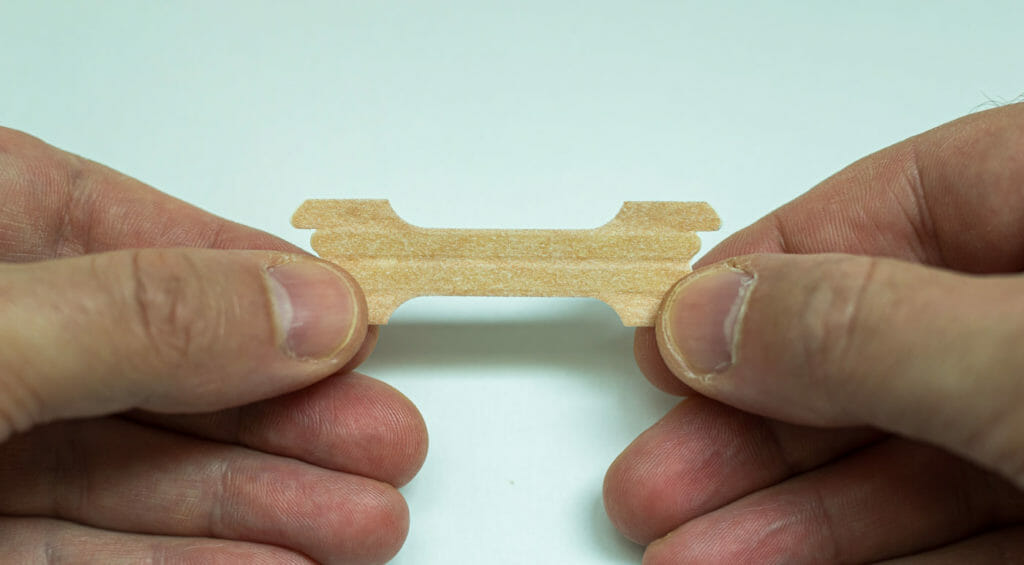
If you regularly rest (or try to rest) next to a trumpeting, grunting, or snoring partner, you know how frustrating it can be. The thought of divorce may not seem too far-fetched after a while. But before you kick your partner to the curb, consider first whether these nocturnal noises are completely innocuous (to your partner, at least) or the result of a serious, possibly life-threatening sleep disorder.
Then you can explore the question of how to prevent snoring and save your relationship, your sleep, and your sanity.
What Causes Snoring?
Snoring is defined as loud upper-airway breathing sounds in sleep—no surprises there. When you enter the deepest stages of sleep, the muscles in your throat relax and the tongue falls backward. When air passes through the narrowed air passages, parts of the throat or nose vibrate, which leads to the characteristic sound of snoring.
The narrower the airways, the harder your lungs must work to push air through them, and the louder the snoring is. Once you figure out what may be causing it, you can explore how to prevent snoring by your partner or yourself.
There are a number of factors that exacerbate snoring. These include:
- Being overweight: increases the tissue around the throat, making the airway passages narrower
- Nasal congestion from the common cold, influenza, sinusitis, allergies, nasal polyps
- Deviated nasal septum
- Smoking: inflames and narrows the airways
- Drinking alcohol: relaxes the throat muscles
- Tissue abnormalities such as an elongated soft palate (the fleshy back part of the roof of the mouth) or uvula (the dangly piece of tissue at the back of the throat), or enlarged tonsils or adenoids: narrows the opening from the nasal area to the throat
- Sleeping on your back
- Pregnancy: hormones cause the mucous membranes in the nasal area to swell—resulting in congestion, which increases when lying down
- Age: muscle tone in the throat decreases as we age, making the airways narrower
- Obstructive sleep apnea: The walls of the throat collapse completely, blocking the airways and creating an apnea (a temporary cessation of breathing). This is a serious disorder and needs to be diagnosed and addressed by a medical professional as soon as possible. Very loud, habitual snoring is one of the signs of obstructive sleep apnea.
How To Prevent Snoring

If you don’t have obstructive sleep apnea, there are several techniques you can try to prevent snoring.
Make Lifestyle Changes
If you’re overweight, your snoring may decrease or stop altogether if you shed some pounds. A study by the University of Florida Colleges of Medicine showed that participants who lost an average of only 7.6kg virtually eliminated their snoring.
Reducing alcohol intake, especially before bedtime, and quitting smoking may also reduce or eliminate snoring.
Change Your Sleeping Position
When you sleep on your back, you do not only contend with the relaxation of the muscles in the throat and nose that occurs in deep sleep, but gravity also tends to push the tongue and soft palate further into the throat, blocking more of your airway.
In many cases, a switch to lying on your side can ease snoring. Sometimes changing the way you sleep is a matter of making sure you have the best mattress for your sleeping habits and preferences. Another alternative is to try a pillow designed specifically for side sleepers, as the comfort may spur you to stay on your side while you sleep.
If that doesn’t do the trick, you may need to try positional therapy, which may necessitate the wearing of a special belt with a pad that sits in the middle of your back to prevent you from rolling over. For the short term, try inserting a tennis ball in a pocket t-shirt and wearing the t-shirt backward, which will discourage you from rolling onto your back as you sleep.
Vibrotactile feedback devices can also be worn on the back of the neck. They work by emitting a small vibration when the wearer turns on their back, which prompts them to roll back to their side, without waking them up.
Use an Anti-Snoring Device

According to the National Sleep Foundation, there are more than 300 patented anti-snoring devices (obviously, a lot of people have been trying to figure out how to prevent snoring).
Some of these devices include oral appliances that are worn over the teeth, similar to a mouthguard. Called mandibular advancement devices, or MADs, they work by pulling the lower jaw forward, which in turn pulls the base of the tongue forward, providing more air space.
Tongue stabilizing devices, otherwise known as TSDs, hold the tongue so it doesn’t fall back into the air passages.
Nasal strips or dilators, worn on the nose, help open nasal passages. Although these often come to mind when someone thinks about how to prevent snoring, they’re most useful when experiencing congestion from colds and allergies.
Continuous positive airway pressure (CPAP) devices are used when a person has obstructive sleep apnea. They are very effective, but they are only for sleep apnea patients and must be prescribed by a doctor.
Improve Muscle Tone
Studies have found that oropharyngeal exercises can help tone the muscles of the soft palate and upper throat to reduce snoring. It involves 4-6 daily exercises using the mouth and tongue.
Singing may also help. A UK study found that daily vocal exercises help tone the muscles of the soft palate and upper throat, which can result in significantly reduced snoring.
And as far-fetched as it may sound, playing the didgeridoo may also help to prevent snoring. In the same way that singing and oropharyngeal exercises tone the mouth muscles, so too does the circular breathing required to play the didgeridoo.
None of these are quick fixes, but if you can’t tolerate appliances or padded sleep belts, they may be viable options for you.
Surgery

Surgery may sound drastic, but removing or tightening flabby tissues in the throat can expand the air passages. It may involve removing the tonsils or adenoids, or part of the uvula or soft palate.
Palatal implants may be recommended by your doctor to provide structural support to the soft palate.
Surgery on the nose to remove polyps or straighten the septum is another option.
If All Else Fails
If you seriously try some of the above solutions without success, and you can’t figure out how to prevent snoring issues in your household, be sure to talk to your doctor or contact a sleep specialist for further advice.
ADDITIONAL RESOURCES:
- TODAY’S BEST CPAP MACHINES
- THE 10 BEST CPAP CLEANERS
- BEST TRAVEL CPAPS
- 20 BEST SLEEP PRODUCTS TO IMPROVE YOUR HEALTH
- THE BEST EARPLUGS FOR SLEEPING
- 10 BEST NIGHT GUARDS FOR TEETH GRINDING
- THE 10 BEST ANTI-SNORING DEVICES